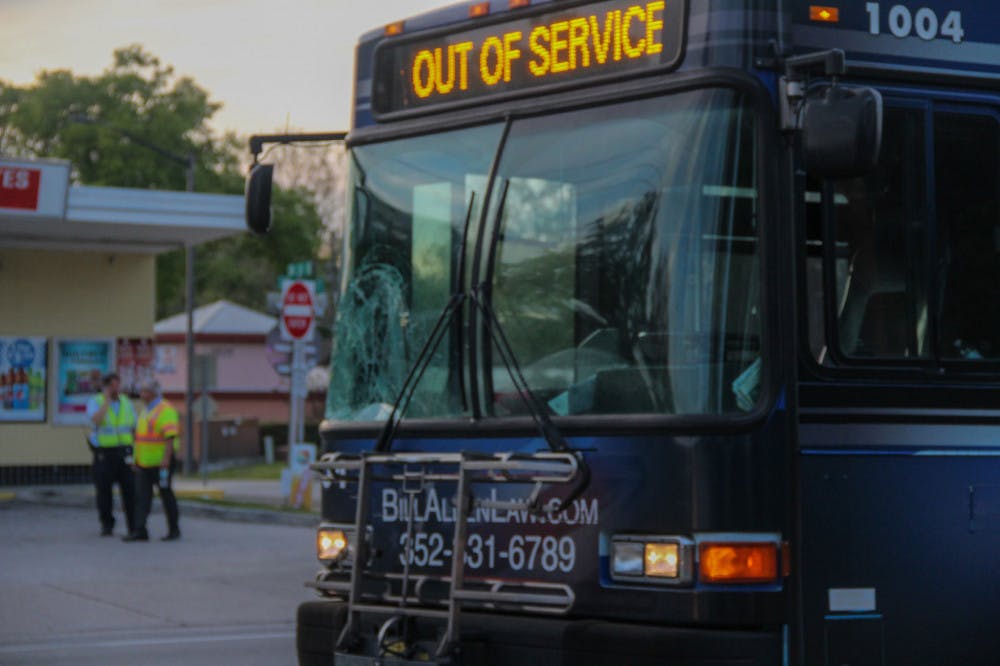The Gainesville Regional Transit System Advisory Board held a meeting Wednesday to discuss UF’s proposed funding cuts, a new federal grant for green energy and persistent app outages.
Transit Director Jesus Gomez said UF is getting “student feedback on their ideas” following a funding cut proposal that would eliminate on-campus routes. The April announcement drew widespread student and community criticism.
The City of Gainesville reached an agreement with UF stipulating the university provide their current RTS fiscal contribution until 2025, allowing normal route operations to continue until a new budget is discussed.
Gomez said UF has expressed interest in servicing campus with a university-owned transit system separate from its Campus Connector and SNAP transportation alternatives, but there has not yet been discussion about leasing vehicles.
UF advised Gomez to wait for a July 18 closed meeting with university administration before disclosing more details, he said.
Board member Adam Livay expressed doubts.
“I’m going to be watching this very closely,” he said. “This one does have the potential to, in many ways, blow up in someone’s face, either ours or theirs. So, getting it wrong would be costly.”
Gomez also addressed the $24.6 million federal grant received from the Federal Transit Administration as a part of the Biden-Harris administration’s Bipartisan Infrastructure Law.
The funding will replace diesel buses with hybrid or fully electric models as soon as 2026 in an effort to help the city reach its goal of zero carbon emissions by 2045. Approximately $4.5 million will be used to build a solar canopy over the RTS employee parking lot to further offset carbon emissions.
RTS shoulders nearly $500,000 in utility fees annually, which Gomez said will be lessened by the solar canopy.
However, the grant cannot be allocated toward ensuring the continuation of on-campus routes next year.
Following a June RTS app outage that lasted for over four days, Transit Customer Service Supervisor Charles Moore said an overload of information caused the system software to “eat its own brain.” A large portion of the delay in repairs was caused by the need to figure out why the malfunction happened, he said.
“They actually had to roll it [the app] back to a previous version,” he said. “It was good data. We just gave it too much at one time, but now we know what we can do to not have that happen again.”
The next RTS Advisory Board meeting is slated to take place Sept. 18.
Contact Sara-James Ranta at sranta@alligator.org. Follow her on X @sarajamesranta.
Sara-James Ranta is a third-year journalism major, minoring in sociology of social justice and policy. Previously, she served as a general assignment reporter for The Alligator's university desk.






